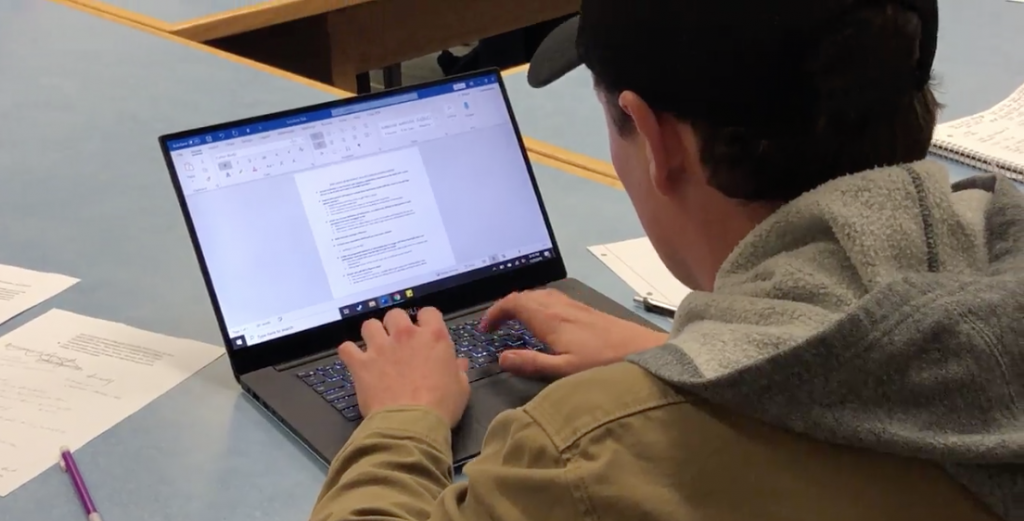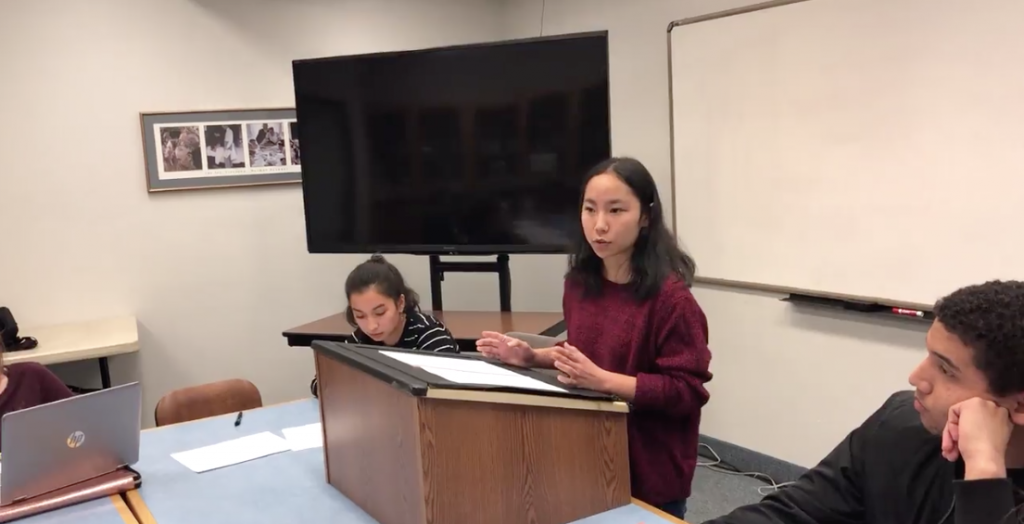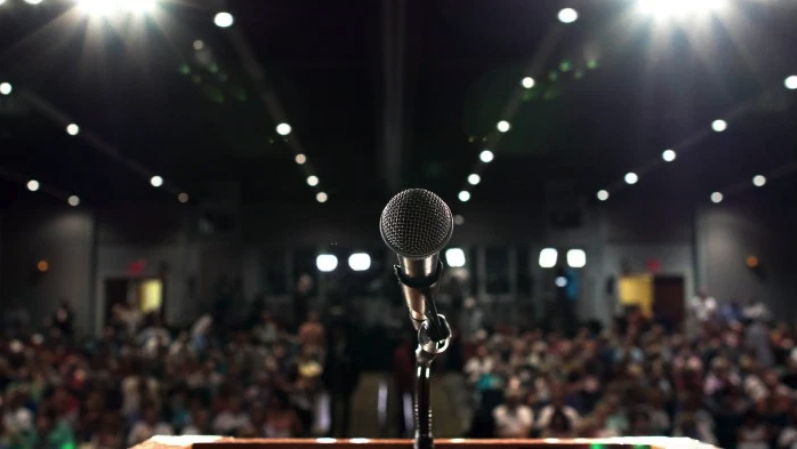Nov. 14, 2019
Heart racing. Palms sweating.
Northern Arizona University senior Britton Lee steps up to the podium and into the blinding spotlight. Dozens of eyes stare at her, anxiously awaiting her to speak. Then, she recalls the advice of Dr. Gee: “You’ve worked really hard to be here, so stand up there and own what you’ve done and what you’re about to do. I believe in you.”
Lee stands at the podium for a second and takes a deep breath.
“Then, I just try to enjoy the moment and know that what I’m saying matters,” Lee said. “I’m up here speaking for those who may not have a voice. I feel like keeping that in mind helps me keep my focus and know that what I’m doing is important.”
She proceeds to give the speech—the one she’s run over in her head dozens, if not hundreds of times—in hopes of winning over the audience and judges by out-arguing her opponent.
Lee is one of 13 NAU students competing in the inaugural Regents’ Cup—a competition, put on by the Arizona Board of Regents, designed for students from all of Arizona’s public universities to engage in rigorous debate.
For Lee, who has been interested in communications since her pre-teen years and always had a knack for arguing, coming to NAU to compete in speech and debate has been a long-time goal. But that’s not the case for many of the team’s members.
Honors College student Denise Ocampo, a junior majoring in biomedical science, was surfing through Instagram one day when a story was posted by Northern Arizona University about the Regents’ Cup.
She was instantly intrigued—speech and debate is something she had always been interested in but never had the opportunity to do. So, she emailed the face of the Instagram story, Gretchen Gee (known as Dr. Gee by her students), principal lecturer in politics and international affairs and coach of NAU’s Regents’ Cup team.
“Not a lot of people in my field of study think they have to work on their public speaking and debate skills. ‘I don’t need that. I’m a biomed major,’” Ocampo said. “But it is an important skill everyone can use, no matter your major. I think it will not only help in my communication skills, but in interviews as well.”

Senior Dante Wright, a political science major with plans to attend law school after graduation, hopes to use the skills acquired through his involvement in the Regents’ Cup to better prepare him for the courtroom.
“I feel like the Regents’ Cup and the experience of public speaking as a whole will put me on the right career path,” he said.
As word about the Regents’ Cup made its way around campus, Gee assembled her team. By the end of the spring semester, she had a number of applications from students interested in being involved. After a difficult interview process, the team came together.
“One of our goals was to make the team as diverse as possible in every single respect: major, ethnicity, background,” Gee said. “We have a bunch of first-gen kids on there, we have kids from outside of Arizona, kids from different ethnicities and backgrounds.”
And the diversity doesn’t stop there, she said. Her students are studying everything from political science and international affairs to journalism, speech language pathology, disability studies and communication.
In order to practice and prepare for the statewide tournament taking place Saturday in Tucson, Gee wanted to schedule a time each week when they could come together and learn how to be good public speakers. Most of the students on the team had no experience with speech and debate, and this was their introduction to public speaking. And so, POS 485 was scheduled for 7-10 p.m. every Thursday, and they used every minute of class time to prepare. By earning three credit hours for the class, Gee hoped students would take it seriously.
“After spending the first three weeks of class learning to be a more skillful public speaker, we started honing in on the different debate styles,” Gee said. “Now, we use class time as a sort of dress rehearsal to practice specific debate styles on the general topics we know will be part of the Regents’ Cup debate: civility and freedom of speech; social media and possible regulation of speech; defamation and slander laws; and free speech on university campuses.”
The topics will appear in four different debate styles: civil dialogue, Oxford, persuasive story and solutions. The students, who compete in six teams of two, won’t know the specific prompt until the day of the competition, so being prepared for anything is key.
“I am really struggling with the persuasive story style,” Lee said. “I’m a person who likes to be prepared, so being put on the spot with no resources whatsoever is a little intimidating for me. The one I’m more comfortable with is the solution style because you are given a prompt of a topic that you’ve prepared on, you just don’t know if you will be for or against the issue.”
Though the team met for three hours each week, many spent upwards of 20 hours outside of scheduled meet times to brainstorm, write and rehearse a single speech.

“One of my students complained that class wasn’t long enough and we needed more time to prepare as a group,” Gee said with a laugh. “So, I encourage them to practice on their own.”
Wright runs through his speech anytime he’s in the car and while he works the paint counter at Home Depot.
Ocampo will run through a speech as many times as it takes for her to feel comfortable with the material, often more than 30 times.
Through practice, public speaking, articulating arguments about which they may not be passionate and learning how to step outside of comfort zones, Gee thinks the experience gained from preparing for and competing in this competition is invaluable. (The participation and prize money earned for placing in the competition doesn’t hurt either. Each student receives a $500 scholarship for participating. Students who earn third or fourth place will get a $6,000 scholarship, second place will earn a $12,000 scholarship and the first-place team will earn a whopping $16,000 each to be put toward his or her education.)
“One of the most important things I’ve learned through this experience is to have strong but respectful communication skills, and I think that’s what the Regents’ Cup is all about,” Ocampo said. “Learning to be respectful of the opinions of others, seeing the other sides of things and developing public speaking and communication skills is something I’ll take with me and use throughout my life, both professionally and personally.”
Learn more about the competition and the students involved in the full-length LumberChats: Inside NAU podcast episode “Conquering the Fear of Public Speaking → The Road to the Regents’ Cup.”

Carly Banks | NAU Communications
(928) 523-5582 | carly.banks@nau.edu



